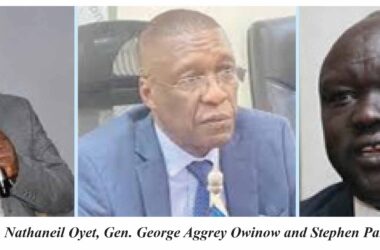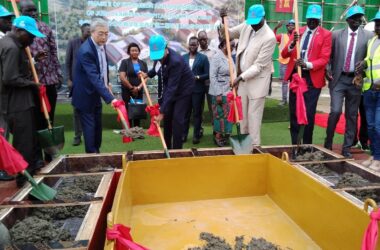By Mamer Abraham
Speaker of the Council of States has urged the members of the Council of States to pass good recommendations that will solve loopholes in the management of oil revenue.
Rt. Hon. Deng Deng Akoon said that Council of States must not only heed the complaints from the states but also find out what the states have done with the revenue allocated to them.
“As a body that is managing this, we also need to give a good recommendation. One of the recommendations that we need to make is that we need to know, since the allocation of these three percent to the states and administrative areas, what they have done. We also need to know,” Akoon said.
Rt. Hon. Mary Ayen Majok, First Deputy Speaker of the Council of States, said the Petroleum Revenue Management Act had already been reviewed and presented to the Ministry of Justice and would soon be in parliament for deliberations.
“The Petroleum Act of 2012 and the Petroleum Revenue Management Act of 2013 were reviewed by the national constitutional amendment committee; they have already been presented to the Ministry of Justice; then in parliament we expect them,” Ayen stated.
Since the Third High-Level Meeting on Environmental Issues started on Tuesday, there have been a number of notable presentations that revealed that some of the counties in the oil-producing states were not receiving their rightful shares of the oil revenue as per the 5 percent allocation to the states according to the act.
Many speakers at the consultative meeting recommended that the petroleum-producing states deserve their share so that they can control environmental degradation that has been prevalent since oil production started.
On Tuesday, the chief administrator of Ruweng Administrative Area, Stephano Wieu Mialek, displayed a picture of a recent baby born with a deformity in Ruweng who died in Nairobi, maintaining that it was a result of pollution.
He said the baby was the seventh child to have been born with a deformity in the area.
The governors from Unity State and Upper Nile State also clearly mentioned the impacts of oil pollution, which included land degradation and children born with defects.
The leaders of the two oil-producing states and administrative areas agreed that the environmental damage caused in their areas was not worth living.
The minister for environment, Josephine Napwon, said in her opening speech at the forum on Tuesday that the committees that were tasked with carrying out environmental audits did not do the needful because they were shielded by top politicians.
However, she did not disclose particulars of the top politicians, she referred to as “big fish”.




